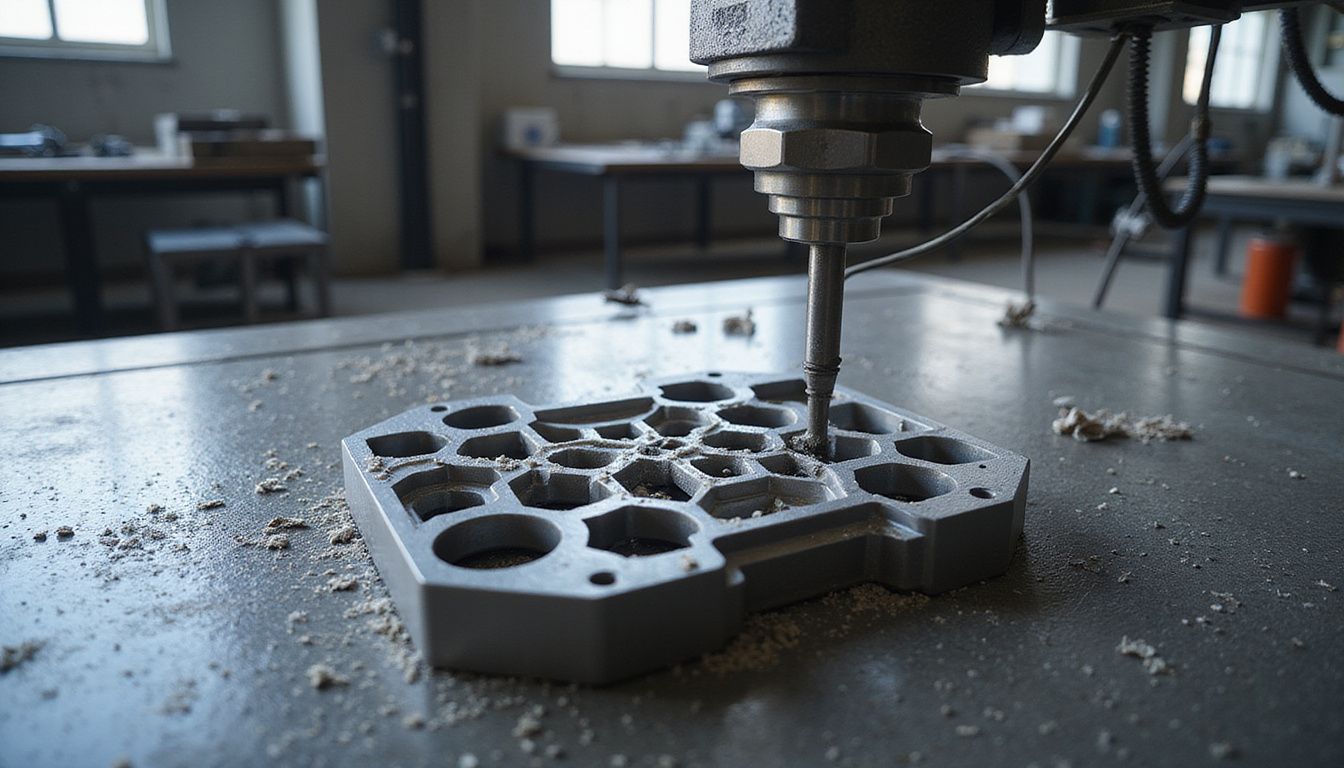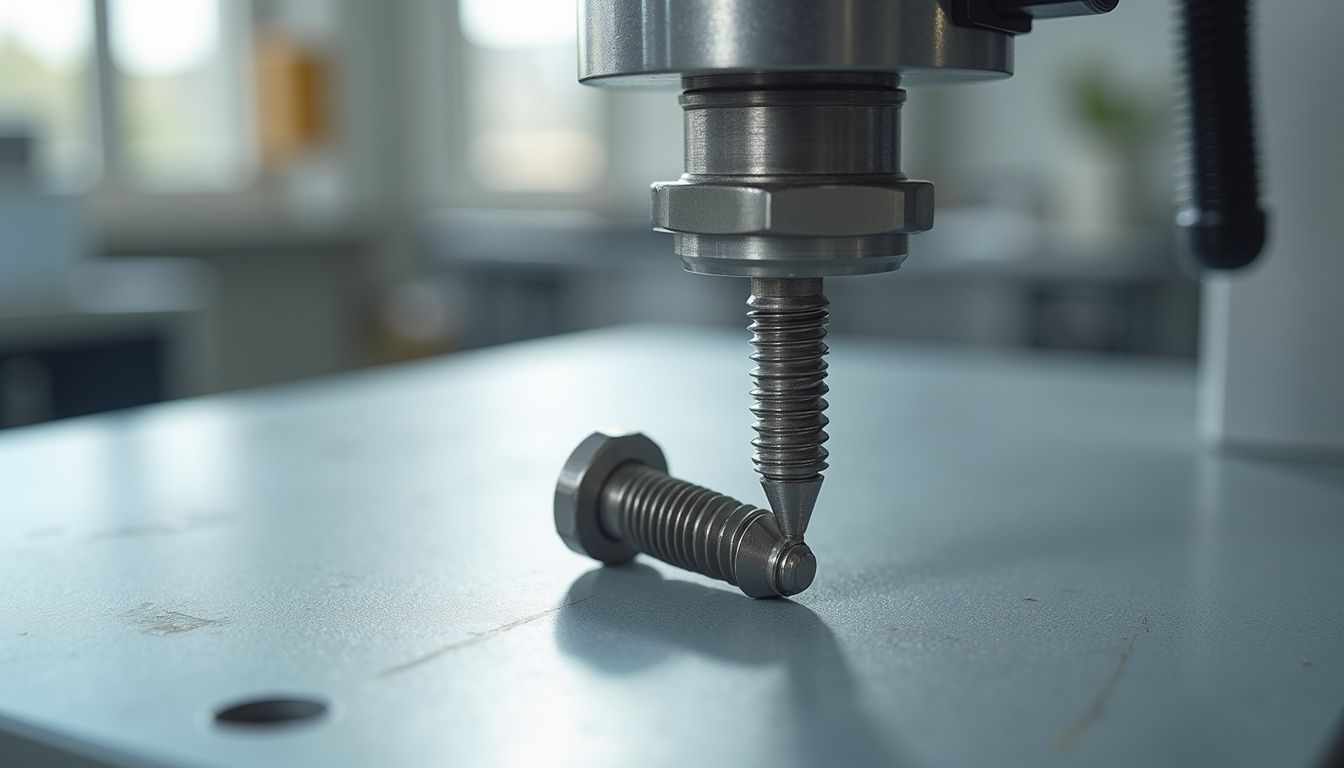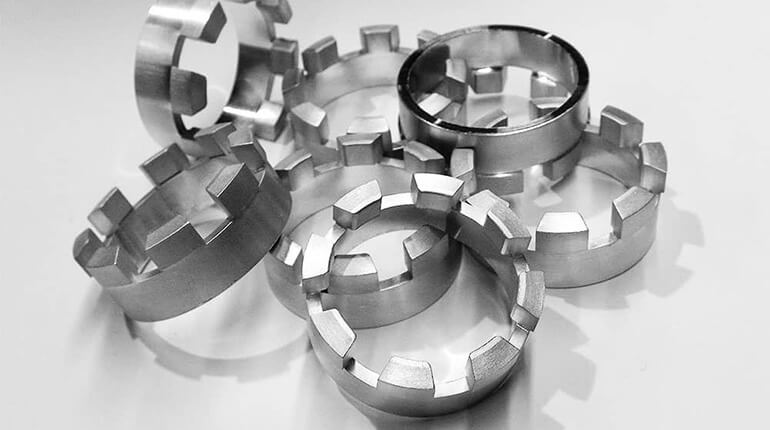
Key Benefits of Using Titanium Alloys
Titanium alloys define modern engineering, offering a unique balance of exceptional strength and low density. Engineers favor this material for critical components in aerospace, medical, and automotive sectors due to its reliability.
This article covers the top 7 benefits, common grades, and specific applications of titanium. You will discover how this metal outperforms steel and improves your product's lifecycle through superior performance.
What Are Titanium Alloys?

Titanium is a transition metal widely recognized for its silver color and low density. In manufacturing, pure titanium is often mixed with other elements to enhance its natural properties.
Understanding Material Composition
Manufacturers rarely use 100% pure titanium for structural parts. Instead, they create alloys by adding aluminum, vanadium, or molybdenum.
This mixture changes the microstructure of the metal. It significantly increases tensile strength and creep resistance. You get a material that is stronger and more workable than the raw element.
General Properties of Titanium
Titanium boasts a density of approximately $4.5 g/cm^3$. This is significantly lower than steel, which sits around $7.8 g/cm^3$.
Additionally, it has a high melting point of roughly $1,668^\circ C$. These inherent physical properties make it a superstar in high-stress environments.
Top 7 Advantages of Titanium Alloys

Why should you choose titanium for your next project? Here are the seven most critical benefits.
High Strength-to-Weight Ratio
This is titanium’s most famous attribute. It is as strong as many steels but about 45% lighter.
This allows you to design parts that handle immense loads without adding unnecessary weight. It is crucial for fuel efficiency in aircraft and performance vehicles.
Superior Corrosion Resistance
Titanium naturally forms a passive oxide layer on its surface when exposed to oxygen. This barrier protects the metal from degradation.
It resists rust, saltwater, acids, and industrial chemicals. Your parts will last longer in harsh marine or chemical processing environments.
Biocompatibility for Medical Uses
The human body does not reject titanium. It is non-toxic and non-allergenic.
This property, known as osseointegration, allows bone to grow into the implant. It is the gold standard for hip replacements, dental screws, and surgical instruments.
High Melting Point and Heat Resistance
Titanium alloys maintain their strength even at elevated temperatures. They do not creep or deform easily under heat stress.
This makes them ideal for jet engines and exhaust systems. You can trust titanium to perform where aluminum would fail.
Non-Magnetic Properties
Titanium is non-magnetic. It does not interfere with magnetic fields or electronic equipment.
This is vital for electronic housings and medical diagnostic tools like MRI machines. It ensures signal integrity in sensitive applications.
Long-Term Durability
Titanium has excellent fatigue resistance. It withstands cyclic loading better than many other metals.
Parts made from titanium resist cracking over time. This reduces maintenance costs and prevents catastrophic failures in critical systems.
Aesthetic Appeal and Surface Finish
Beyond function, titanium looks professional. It takes surface treatments well, including bead blasting and polishing.
You can also anodize titanium in various colors without using dyes. This is popular for consumer electronics and custom automotive parts.
Common Titanium Grades in CNC Machining

Selecting the right grade is essential for your specific application.
Titanium Grade 5 (Ti-6Al-4V)
This is the "workhorse" of titanium alloys. It accounts for over 50% of global titanium usage.
It offers high strength and heat resistance. You will find Grade 5 in aerospace fasteners, structural components, and sports equipment.
Titanium Grade 2 (Commercially Pure)
Grade 2 is unalloyed titanium. It is not as strong as Grade 5 but offers superior corrosion resistance.
It is also more formable and weldable. Use this for chemical processing equipment, heat exchangers, and marine parts.
Titanium Grade 23 (Medical Grade)
Also known as Ti-6Al-4V ELI (Extra Low Interstitials). It is a purer version of Grade 5.
It has superior fracture toughness and biocompatibility. This is the top choice for complex medical implants and surgical staples.
Titanium vs. Stainless Steel: Key Differences
Understanding how titanium compares to stainless steel helps you make informed material decisions.
| Feature | Titanium | Stainless Steel |
| Weight | Very Light ($4.5 g/cm^3$) | Heavy ($7.8 g/cm^3$) |
| Strength | High strength-to-weight | High tensile strength |
| Cost | High | Moderate to Low |
| Machinability | Difficult (Low heat conductivity) | Good to Moderate |
| Corrosion | Excellent (Saltwater/Chemicals) | Good (Depends on grade) |
Key Industry Applications for Titanium Parts
Aerospace and Aviation Components
Weight reduction is the primary goal in aerospace. Titanium is used in airframes, landing gear, and turbine blades. It withstands high-altitude cold and engine heat simultaneously.
Medical Implants and Surgical Tools
Due to biocompatibility, titanium is essential here. Manufacturers use it for joint replacements, bone plates, and dental implants. It withstands the body's internal environment for decades.
Automotive Performance Parts
Titanium reduces unsprung weight in race cars. Common applications include titanium valves, connecting rods, and exhaust systems. It improves acceleration and handling.
Marine and Chemical Processing
Saltwater destroys most metals, but not titanium. It is used for propeller shafts, desalination plants, and underwater robotics. It resists pitting and crevice corrosion.
Challenges of CNC Machining Titanium Alloys
While beneficial, titanium is notoriously difficult to machine. It has low thermal conductivity, meaning heat concentrates at the cutting tool edge.
- Heat Buildup: Can damage cutting tools quickly.
- Galling: The metal tends to stick to the tool.
- Vibration: Requires rigid machine setups to avoid chatter.
You need experienced machinists to handle these challenges. Proper coolant pressure and specialized tooling are non-negotiable.
Choose Standard Machining for Titanium Parts
At Standard Machining, we specialize in processing hard metals. Our advanced 5-axis CNC centers can handle complex titanium geometries with precision.
We understand the nuances of tool wear and heat management. You get parts that meet strict tolerances and surface finish requirements. We ensure your project is delivered on time and within specification.
Conclusion
Titanium alloys offer unmatched versatility, combining high strength, low weight, and incredible corrosion resistance. Whether for aerospace or medical use, titanium ensures performance and longevity.
Ready to start your project? Contact Standard Machining today for a precision quote on your titanium parts.
FAQs: Titanium Alloys
Is titanium stronger than steel?
In terms of strength-to-weight ratio, yes. Titanium is about 45% lighter than steel but provides comparable tensile strength. However, some high-strength steels are stronger in absolute terms.
Why is titanium machining expensive?
Titanium is harder to extract and refine than iron. Additionally, machining requires slower speeds, specialized tooling, and more time, which increases production costs.
What is the most common titanium alloy?
Titanium Grade 5 (Ti-6Al-4V) is the most common. It offers an excellent balance of strength, heat resistance, and workability for most industrial applications.
Does titanium rust or corrode?
No, titanium does not rust. It forms a stable, protective oxide film that resists corrosion from saltwater, acids, and industrial chemicals.
Is titanium difficult to machine?
Yes. It generates high heat and can stick to cutting tools. It requires skilled machinists and rigid CNC equipment to process effectively.


